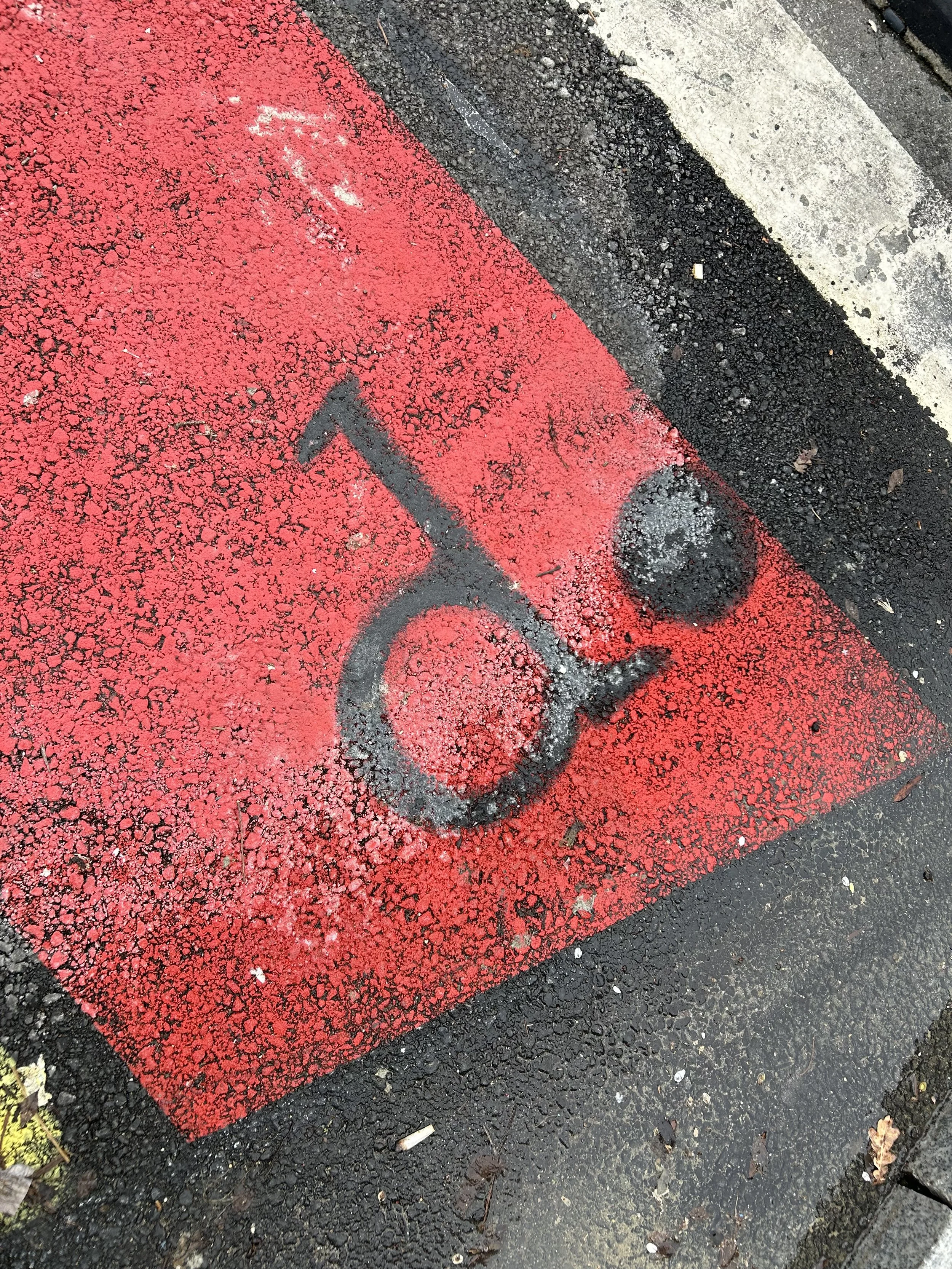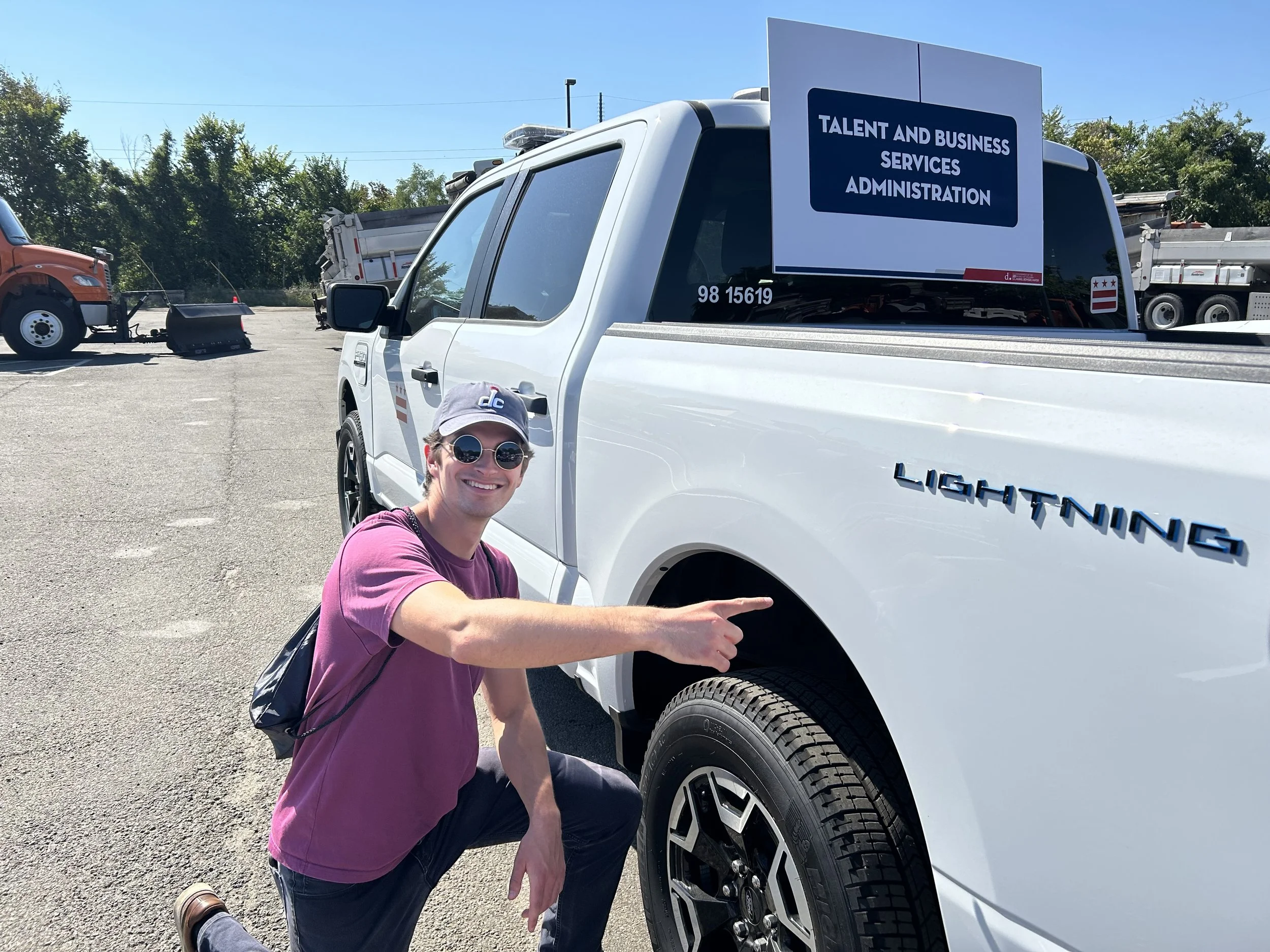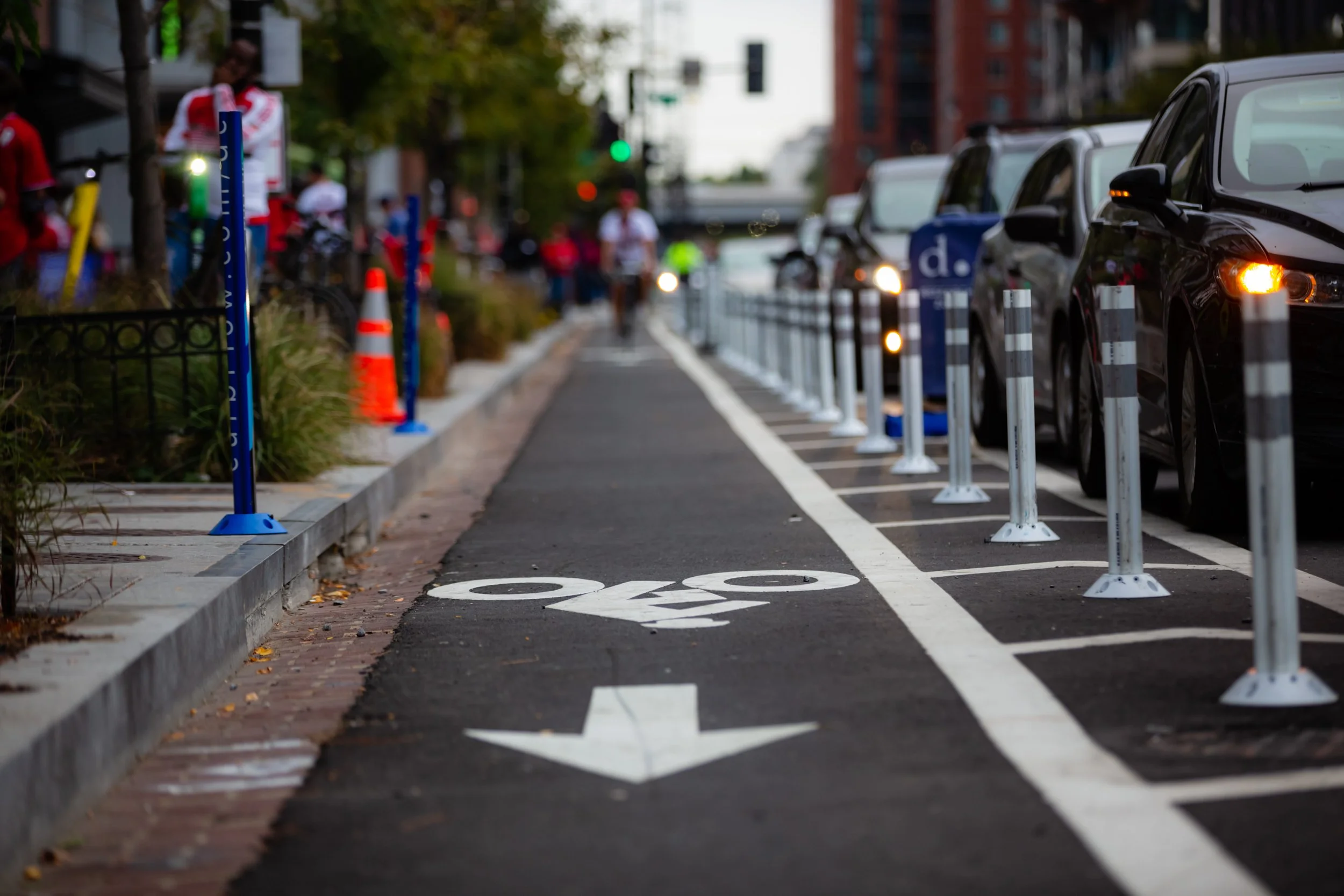District Department of Transportation (DDOT)
As a part of my core responsibilities, I was responsible for formulating and executing the District’s transportation budget. This included a roughly $200M Operating budget with around 1,500 employees and a $4B Capital Improvement Plan. This involved presenting budget proposals to the Director, Deputy Director and Chief Officers. The District’s budget is balanced, so many of our solutions to budgetary problems involved creatively using existing resources through project and purchase order closeouts and auditing inactive projects to find and reprogram additional funds to projects in need.
Centralized Fleet Electrification
While evaluating Vehicle Fleet procurement plans from various agencies, I discovered that there was a lack of coordination between these agencies on their electrification plans. I recommended to the Mayor’s Office that the District create a centralized plan for purchasing Electric Vehicles (EVs) and Zero Emission Vehicles (ZEVs) and retiring its internal combustion engine (ICE) fleet. The Mayor’s Office agreed with my recommendation and established an interagency working group to create this plan. I represented DDOT on this working group.Renewable Portfolio Standard Adjustment Act
To confront crippling electricity prices that interfered in the District government’s daily operations, I wrote legislation to amend the District’s Renewable Portfolio Standard. This amendment paused the standard for four years to allow for global energy prices to fall, while still keeping the District on track towards carbon neutrality. I wrote this law with the General Counsel’s office and submitted it as a part of DDOT’s FY25 Budget Proposal. It was signed into law with the passage of the FY25 Budget Support Act.Project Cost Estimates
One of my last projects at DDOT involved performing an audit of the agency’s project cost estimation process. I had observed that DDOT issued many change orders on projects whose costs exceeded their initial estimates. I conducted interviews across several divisions to discover that each one had a wildly different process than their colleagues. I recommended to Chief Officers to create a standardized cost estimation process that included multiple levels of review and a more accurate inflation rate. I also advocated for the creation of a cost estimation division to mirror other states’ DOTs.
Concrete Blocks on the East Basin Dr Bike Lane
One of my victories involved the installation of concrete barriers on the bike lane on East Basin Dr, near the Jefferson Memorial. Due to complexities regarding right of way and procurement contracts, concrete blocks, which make bike lanes significantly safer, did not extend onto East Basin Dr from the 15th St protected bike lane. It had been this way for years, but I was able to work with the National Park Service, the Federal Highways Administration and DDOT’s program offices to free up funds that had been locked through strange federal restrictions. We then created an MOU that facilitated the installation of the blocks. Now, the bike lane is significantly safer to use for residents and visitors of the District.


